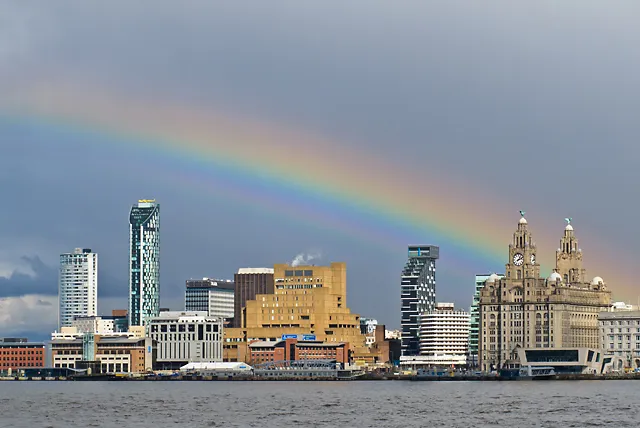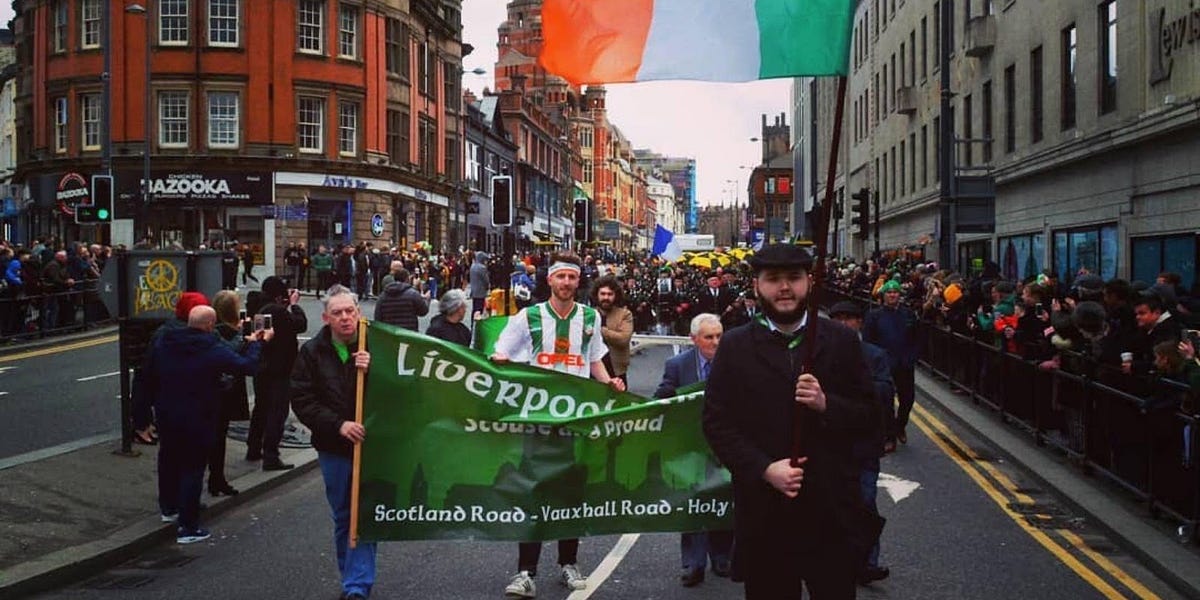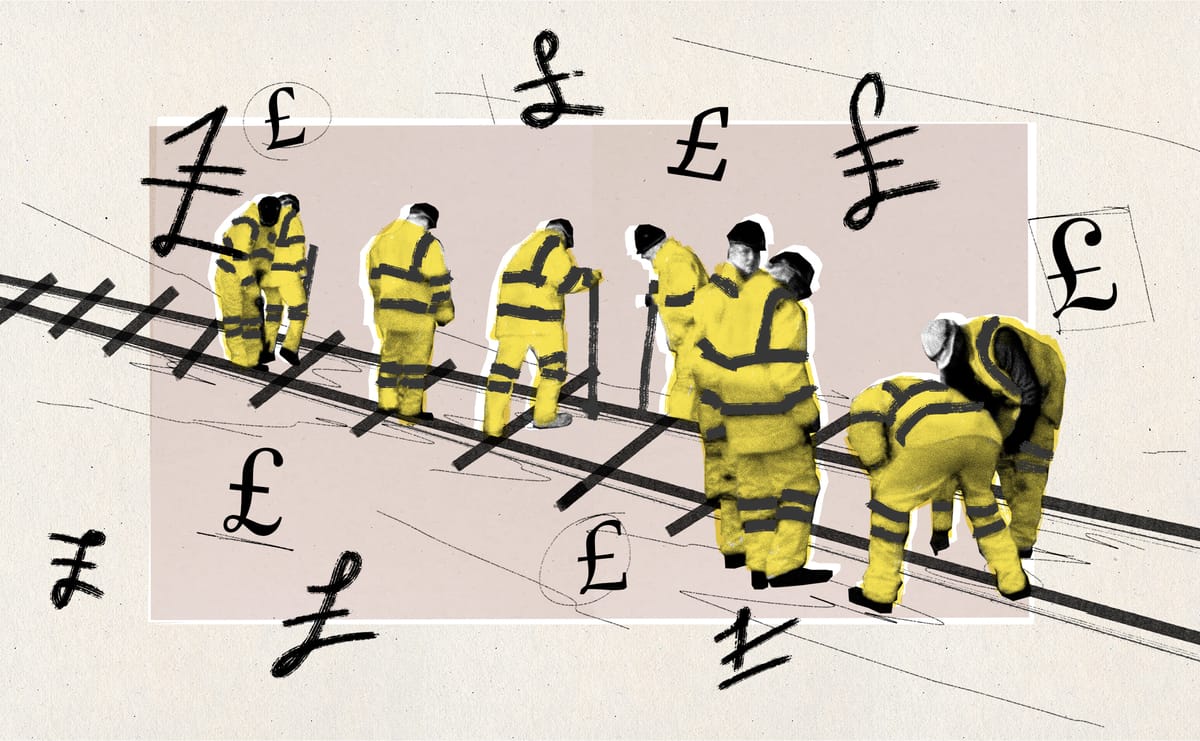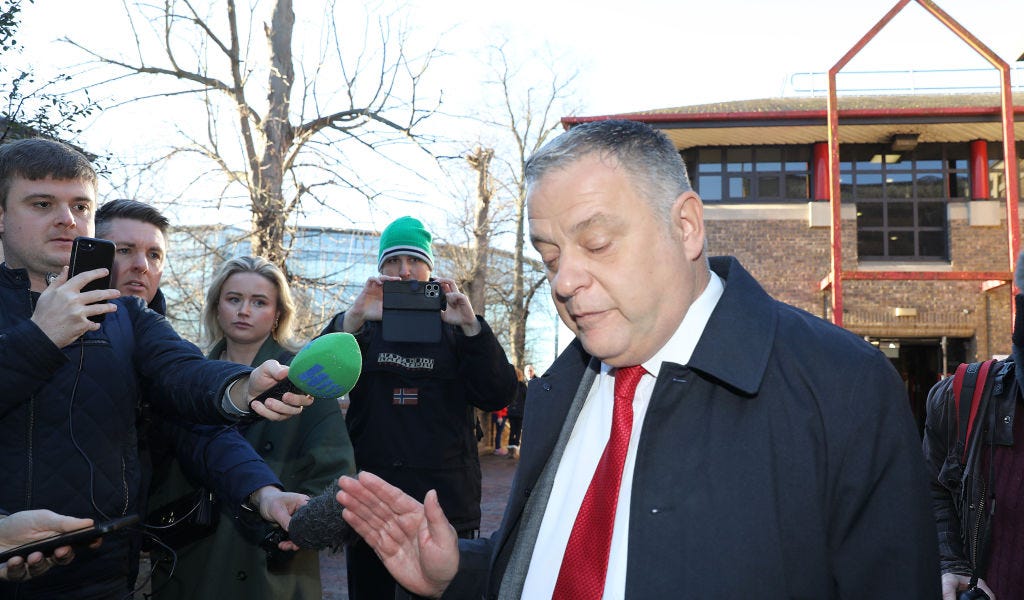Parking charges rise by 60%. But tackling congestion isn’t a one-way street

Plus: A by-election looms in Runcorn and Helsby, good news for theatre lovers and the best things to do this week
Dear readers — welcome to your Monday briefing, and a very happy St Paddy’s Day to all who celebrate. It’s a fabulous time to revisit historian and regular contributor David Swift’s piece from last year about how Irish influence has famously shaped so much of Liverpool – and how Liverpool, in turn, helped shape Ireland.

ICYMI: Over the weekend, we published a joint investigation with our sister publication in Birmingham, The Dispatch, into the collapse of a skills training provider awarded a combined £3 million from regional mayors in Liverpool and Birmingham – which is now under investigation for a variety of allegations. We learned that long before it all fell apart, Redstone Training frequently let down vulnerable people with high hopes for their futures. Several former Redstone staff told The Post that trainees were overpromised about the employment opportunities awaiting them post-graduation. So were millions in public funds virtually wasted on broken promises?

On with today’s edition, which is devoted to a perennial topic here in Liverpool: the parking problem.
We want to hear from you! Do you have any tips or tidbits about Merseyside? Bad bosses, neighbourhood disputes (the weirder the better), people getting up to something they shouldn’t? What about someone doing incredible work for their community who deserves their flowers? Email any and all ideas to editor@livpost.co.uk. If you’re concerned about confidentiality, we’re always happy to chat on background or completely off the record.
Your Post Briefing
It’s official: MP Mike Amesbury has announced that he is standing down following his recent conviction for assaulting a constituent, triggering a by-election on a yet to be determined date. According to the most recent polling, Reform looks poised to win the first by-election to take place during Keir Starmer’s tumultuous tenure as Prime Minister – in what has been one of the safest Labour seats in the country. Read Jon Egan’s analysis from earlier this year to learn how we got here.

In excellent news for lovers of theatre, beautiful old buildings, and Liverpool’s cultural heritage: the historic Epstein Theatre will be re-opened later in 2025, two years after being forced to close its doors following the removal of financial support from the council, which had been in place since the 1960s. Meanwhile, the Empire Theatre is celebrating its 100th birthday – two very welcome pieces of news not long after Laurence wrote an excellent piece about the demise of certain Liverpool theatres, which is hopefully a trend now in reverse…

And benefit cuts may be looming, but spare a thought for Patrick Hurley. The Southport MP took to social media platform X at the weekend to defend chancellor Rachel Reeves’s acceptance of free Sabrina Carpenter tickets. Responding to a post that pointed out that Reeves, on a salary of £150,000, should be able to afford concerts on her own, Hurley suggested that Reeves “only accepted tickets from a corporate relationship-building perspective”. In a series of now-deleted follow-up posts, he admitted that he too had accepted gifts he didn’t particularly want, remembering freezing his hands and feet off at sports events he’d accepted tickets for gratis in order to likewise build corporate relationships. And they say nurses have it tough.
Big story: Liverpool’s parking charges are rising by up to 60% today. But tackling congestion is not a one-way street.
Context: Council tax isn’t the only thing on the rise in Liverpool. From today, the cost of parking in and around the city centre is also going up. Multi-storey car parks will be subject to a 39.69% rise, off-street car parks 47.28%, and on-street car parking up to 60%.
The increase will bring Liverpool city council’s fees into line with other cities of a similar size, according to its leader Liam Robinson. “If we’re not charging comparably to other core cities, we’re not generating the revenue our residents deserve to deliver services,” Robinson said.
This move was announced in December. But it follows several months of parking-related chaos on Merseyside. (Arguably years, for those who remember the Echo’s probe into 14 city councillors who used a "back door" route to get their tickets rescinded, or the Beautiful Ideas Company parking scandal and its links back to — you guessed it — sitting councillors.)
Plans for new charges in 22 parks across Wirral were subject to a backlash last October. Sean Martin, chair of the New Brighton coastal community team, told the BBC, “It's a tax on the people of the Wirral, short-sighted council officers and councillors looking at a way to get revenue for the council and they are short-sightedly thinking this is the solution.” The increases went ahead regardless.
Then in January, news broke that Halewood residents had been charged £1,400 to park on their own driveways. This confusion in Knowsley was, to be fair, down to a private management firm called FirstPort and not the local council. (Bizarrely, the BBC also reported that locals had been sent bills for cleaning, maintaining fire safety equipment, carpets and even terrorism insurance.)
But all this could reasonably contribute to a feeling that Merseyside motorists are being driven away. The row over parking restrictions around the new Everton stadium have raged for weeks now, with the city council eventually admitting the initial proposals had been half-baked.
Of course, parking charges are not just a way of raising money for councils with budget deficits to fill. They’re also an important part of discouraging congestion. The more expensive it is to park, the more likely it is that people will walk or use public transport, which are also more environmentally friendly ways to get around.
On-pavement parking is also a big problem in parts of the city, with inconsiderate drivers blocking ambulances or choking the roads around schools. This can have fatal consequences: the bereaved mother of Bobby Colleran, who was just six years old when he was hit by a van on his way home from school, has appealed for better road safety around Merseyside schools.
Although parking charges cannot directly address illegal or careless parking, the hope is that a general discouragement of car use can have positive knock-on effects. The Liverpool Community Independents group say that the powers available to the city council to tackle these issues are weaker than those of their counterparts in London.
“We need more powers to remove the vehicles of repeat offenders,” says independent councillor Alan Gibbons, but even more important, he argues, is “an integrated transport system to offer a long-term solution.”
According to the Financial Times, this is a country-wide problem. The UK’s cities do worse for public transport than any other wealthy western nation – as the only one with fewer than 20% of its major cities served by trams, metro, or urban light rail. (For comparison, around 80% of France’s large urban centres have at least one of these amenities, while in Germany it’s closer to 90%.) Liverpool at least has a metro, while Leeds is the largest European city without either that or a tram. Birmingham, larger than either combined, has no metro either, and although it does possess one tram line, you’d be hard pushed to call it a network. (Unlike Liverpool, it’s also not particularly walkable.)
That’s not to say Liverpool’s public transport is particularly good, however. Its paucity was highlighted three years ago, when the city council closed the Strand to celebrate World Car Free Day. The consequence wasn’t a metropolis suddenly free of vehicles or exhaust pollution, but mass pile-ups and traffic chaos around the city centre.
Meanwhile, regular Post readers will know that Merseyrail has been suffering from arrested development, with its vaunted new fleet of 777 super-trains plagued by technical problems since their inception. Compared to other urban regions, Liverpool is overrepresented for disused railway stations, and in the last century has lost both its world-famous overhead railway and a tram network that stretched from Litherland in the north to Garston in the south, and from west to east connected the Pier Head all the way to Prescot. On any given day, a bus strike has the power to reduce parts of Liverpool from a contiguous city to a series of disconnected villages that might as well be on distant planets.
Bottom line: Like council tax rises, parking charges aren’t in themselves a bad thing. It depends what residents can expect for their money in return. Compared to other UK cities, Liverpool has been streets ahead when it comes to parking, walkability, or public transport. But in a wider European — and Western — context, it doesn’t fare so well. Nor, indeed, in a historical one — the fact this city was once served by bus, tram, metro, and overhead railway is seldom lost on someone stuck waiting 45 minutes for a broken-down 777 on a Friday evening. Whether the answer is to turn Merseyrail public, as RMT boss Mick Lynch demanded a fortnight ago, or to revive long-since cancelled light-rail network projects, either local councils, the Liverpool City Region Combined Authority, or both will need much more funding. And with the current Labour government in a cost-cutting mood, that doesn’t seem likely any time soon.
Post Picks
On Wednesday, head over to the Sefton Cricket Club for AM Frequencies, an evening of Electronic and Modular and Synthesiser music and visual expression. Tickets for £4.50 here.
On Saturday, DJ group Chop.Life will be celebrating their three year anniversary at 24 Kitchen St with the sounds of amapiano, gqom, afrobeat, dancehall, afrohouse/tech, garage, bailey funk and more. Final release tickets for £16.75 available here – act fast.
On Sunday, St George’s Hall spring market returns with almost 70 stalls, live music, and hot street food on offer from 10am til 4:30pm. Free entry.
Later on Sunday at the very same venue (why not make a day of it): enjoy stunning performances from the highly acclaimed London Concertante, who will be performing a selection from some of the most popular West End musicals in a gently candlelit St George’s Hall. Tickets from £39 available here.
Photo of the week
A rainbow over the Liverpool waterfront – with a pot of gold at the end, perhaps? – as viewed from the Woodside ferry terminal. Photo: William Starkey via Creative Commons.
Recommended reads
This piece in The Times, an excerpt from Ian Leslie’s forthcoming book, John and Paul: A Love Story in Songs: “John Lennon, Paul McCartney and the grief that united two lost teens".
And Frank Cottrell-Boyce reviews Post contributor David Swift’s “tastily cargoed clipper ship of a book”, Scouse Republic: “The city’s long-touted exceptionalism is explored in this absorbing and highly personal account of its colourful history.”





Comments
Latest
'The cleverest man in England' was from Liverpool. Did it hold him back?
Why are Merseyside’s state-of-the-art hydrogen buses stuck in a yard outside Sheffield?
I was searching for my identity in a bowl of scouse, and looking in the wrong place
The Pool of Life
Parking charges rise by 60%. But tackling congestion isn’t a one-way street
Plus: A by-election looms in Runcorn and Helsby, good news for theatre lovers and the best things to do this week